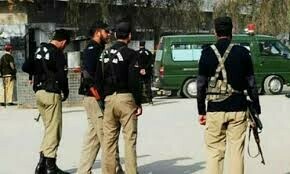FAISALABAD: Seven associations of doctors and medical teachers have called the Pakistan Medical and Dental Council (PMDC) a body representing interests of the private sector rather than focusing on ensuring rights of the public.
The Pakistan Medical Association (PMA), Medical Teachers Association, Pakistan Society of Forensic Medicine and Toxicology, Young Doctors Association, Private Hospitals Association, Forum of Family Physicians Faisalabad and Social Security Doctors had sent out a joint petition against the PMDC to the Senate on May 21.
The Senate committee on National Health Services, Regulation and Coordination has taken up the petition and asked representatives of the bodies to attend the meeting on July 30.
In the petition, a copy of which was available with Dawn, the associations stated: “The PMDC is betraying public trust/interests relentlessly but protecting wholeheartedly the business interests of a cartel of private medical colleges and ruining medical education and profession in the country.”
It further stated that the introduction of PMDC (Amendment) Act 2012 under political influence of a cartel of private colleges was most unfortunate.
Doctors, teachers’ bodies claim council safeguarding private sector
“Through this amendment, powerful business enterprise of private medical colleges/universities has successfully achieved an unprecedented membership in PMDC and is now controlling the statutory regulatory body from within,” it added.
After this act every new private medical university is automatically entitled to PMDC membership due to which every private college is manoeuvering to get university status. These institutes are unable to impart even the minimal level of basic medical education, and being recognised for postgraduate degrees and qualifications.
The petition further alleges that Private Medical Universities Association of Pakistan President Dr Asim Hussain had succeeded in becoming vice president of the PMDC. He, along with other private members, were making disastrous decisions to protect and advance their business interests.
Driving the final nail in the coffin of quality medical education in Pakistan, the council granted illegal eligibility to specialists of clinical sciences to be employed as faculty in basic medical sciences. It explained that “there is a generalised paucity of faculty in the basic medical sciences departments in the country”.
Being the licensing authority, the council allowed public and private medical colleges to operate without considering availability of faculty and other requirements. In six years, it had pushed the number of medical colleges from 20 to 128 – an unprecedented increase of 650 per cent.
PMA Faisalabad Secretary Dr Muhammad Irfan said the PMDC was a regulatory body to ensure the entire system of health was active. However, he said, with the surging influence of private sector, the body was losing its strength that would ultimately damage the entire healthcare system, producing doctors with poor skills. He added that a group of doctors would join the Senate committee meeting and present their case to save the healthcare system.
Published in Dawn, July 25th, 2015
On a mobile phone? Get the Dawn Mobile App: Apple Store | Google Play














































Dear visitor, the comments section is undergoing an overhaul and will return soon.